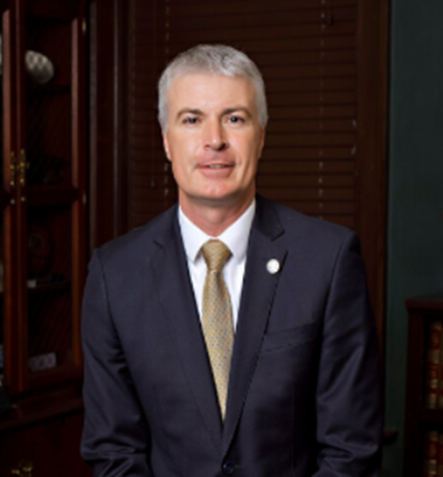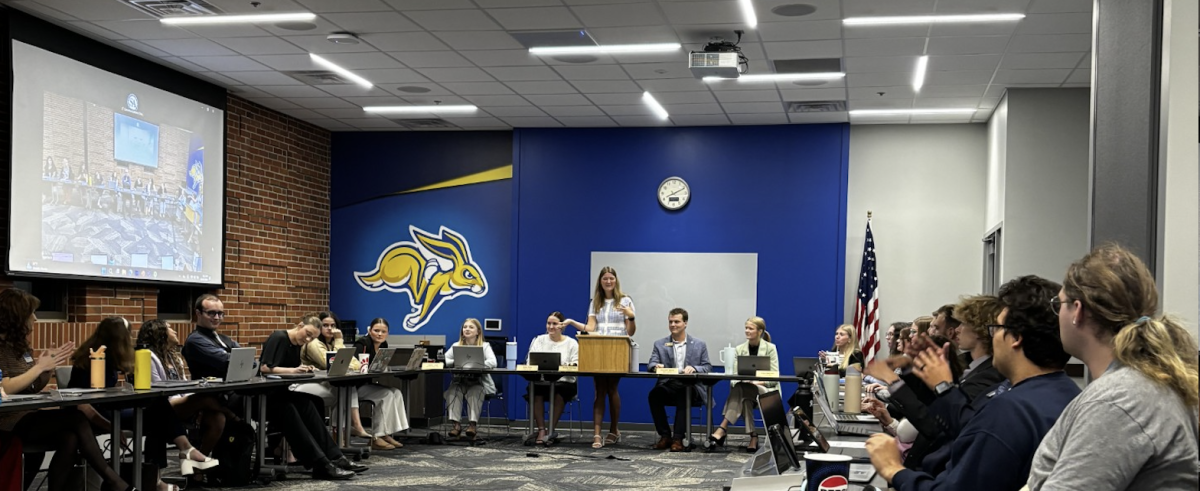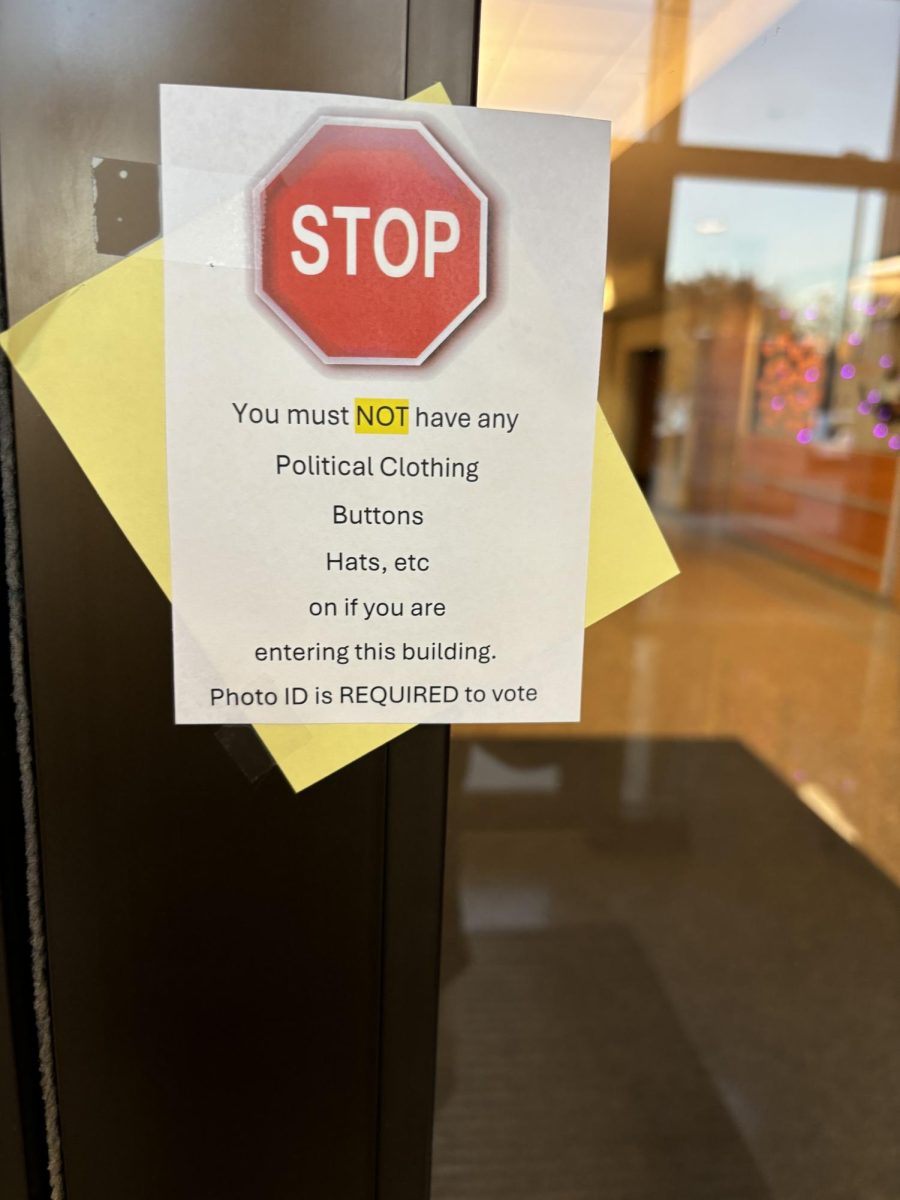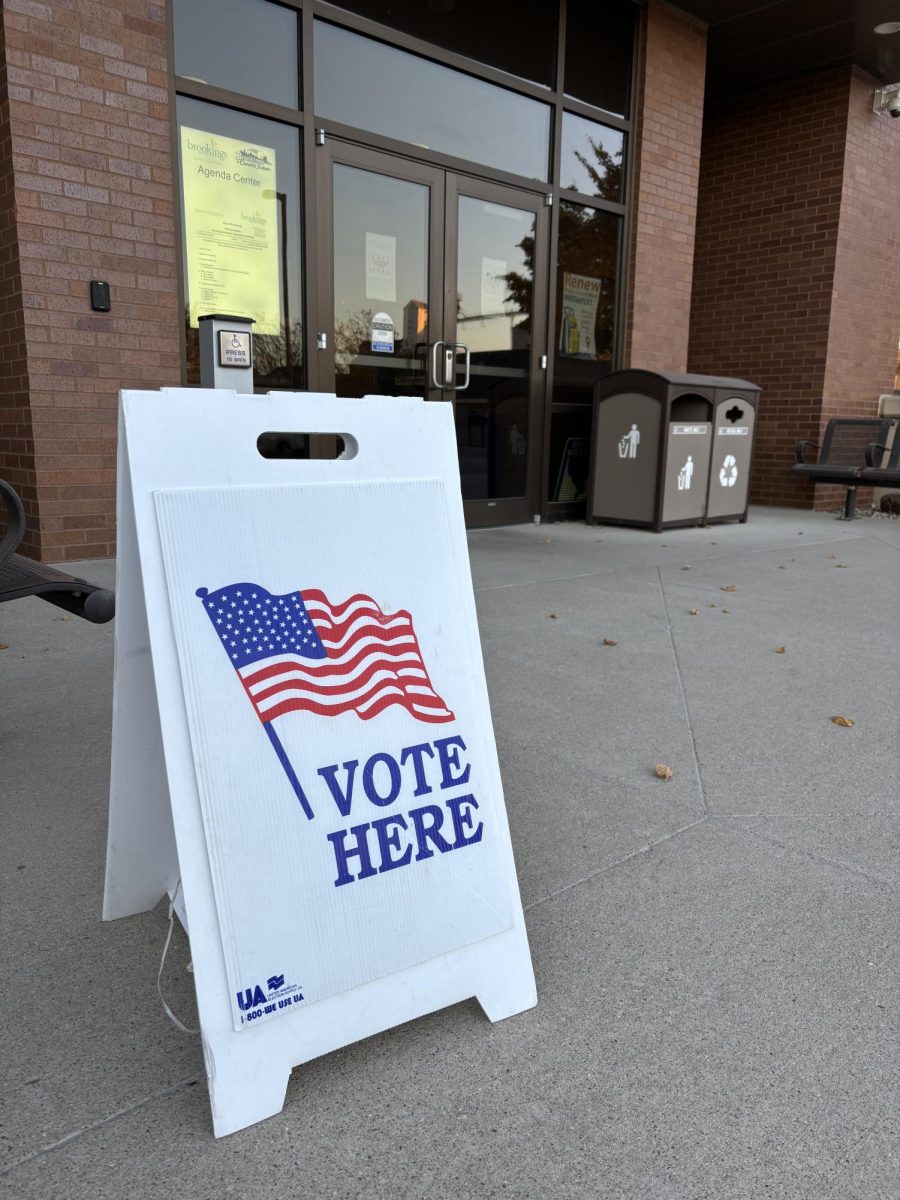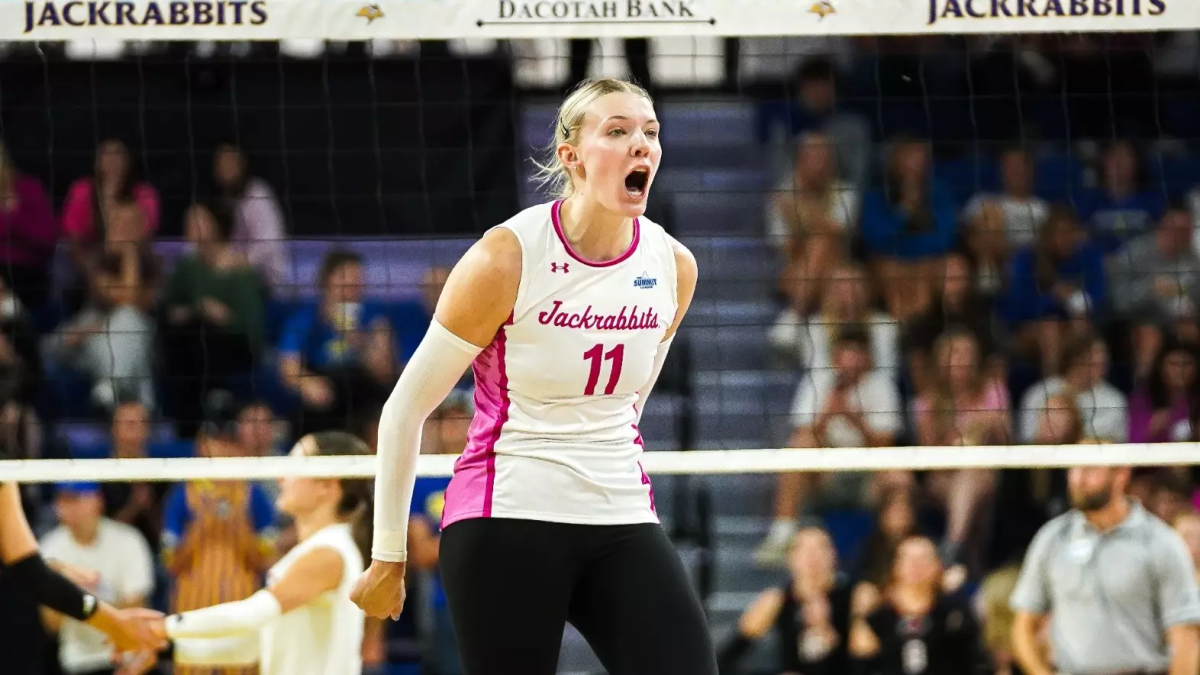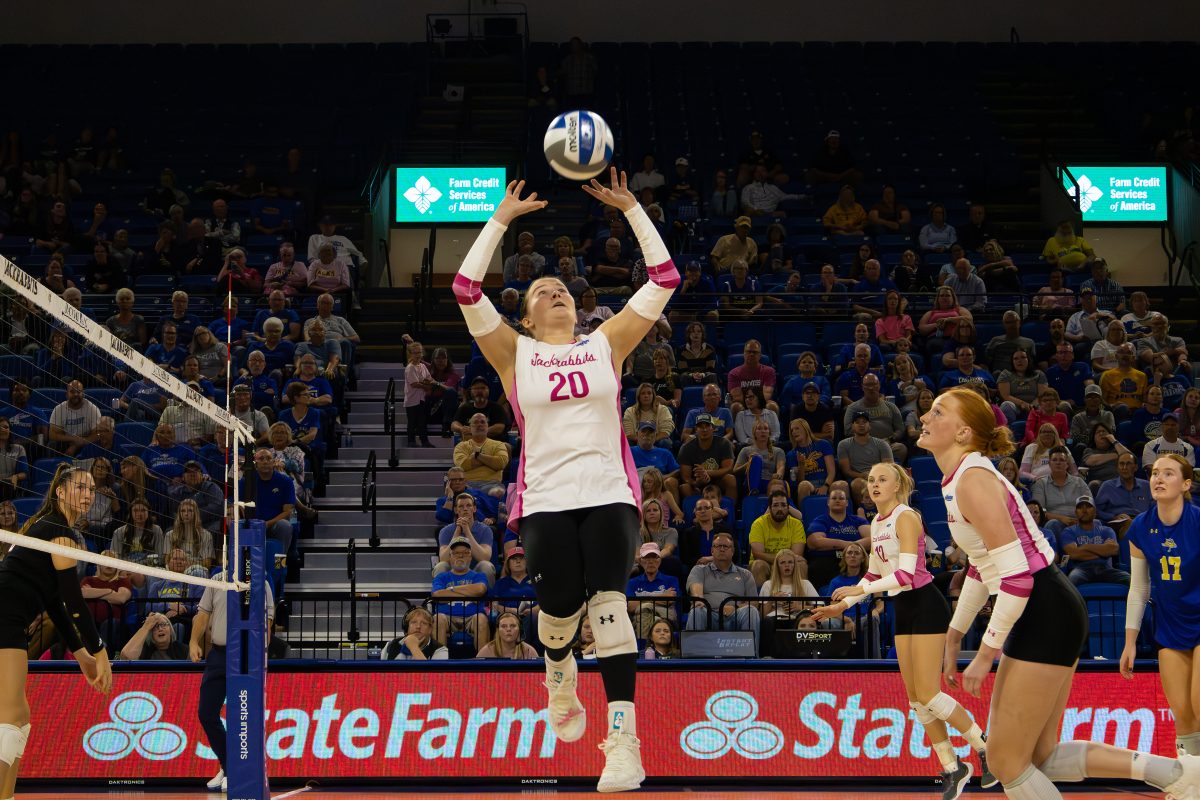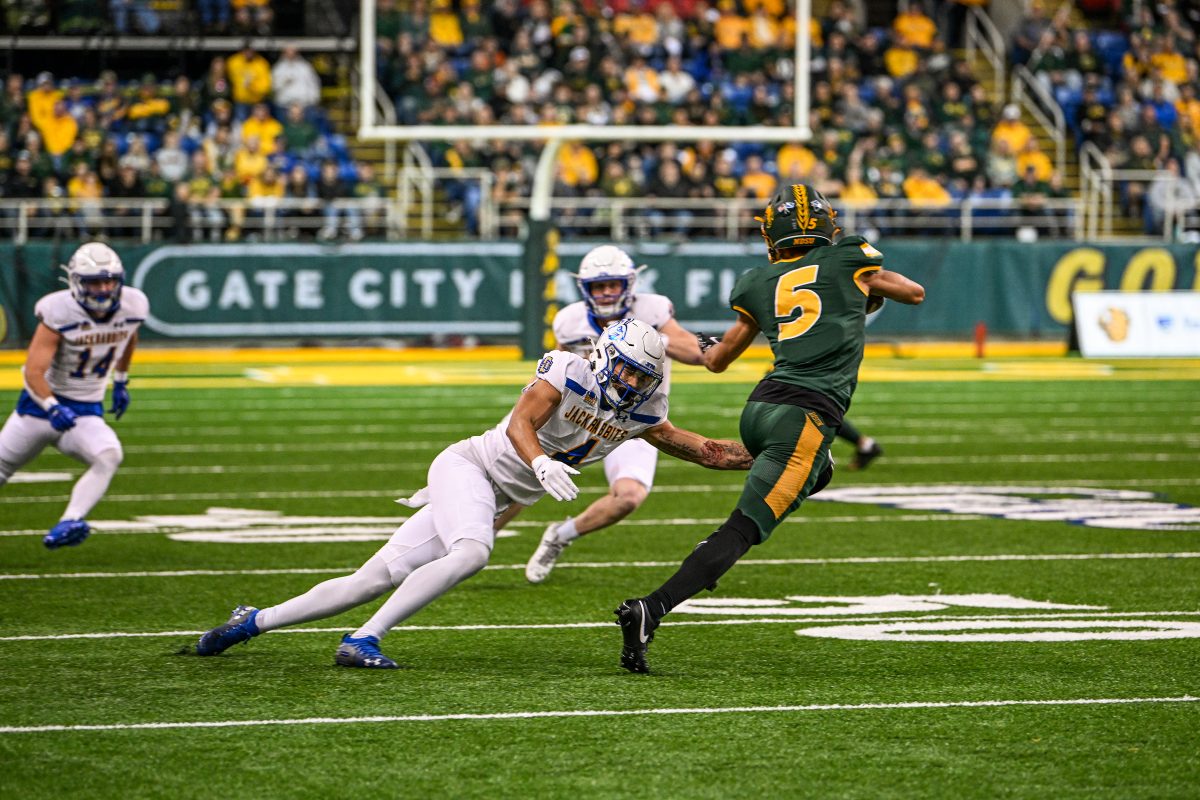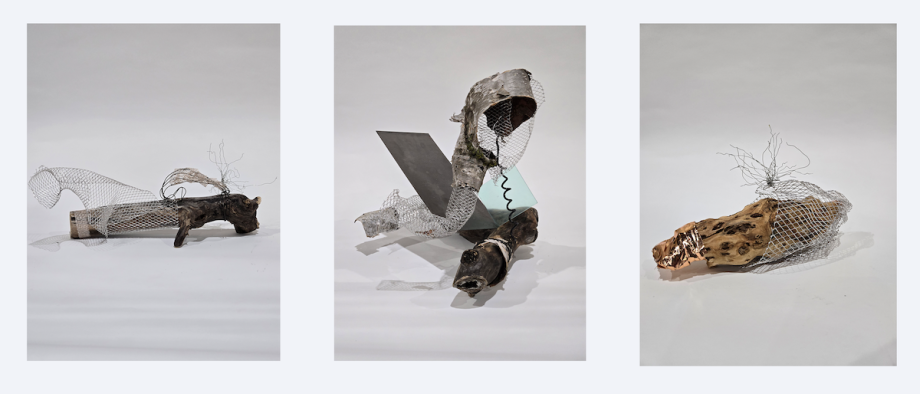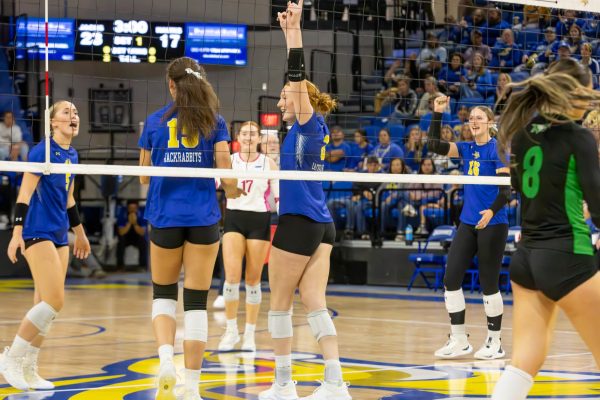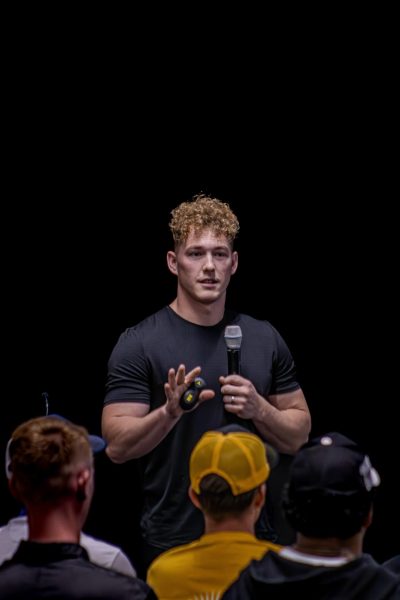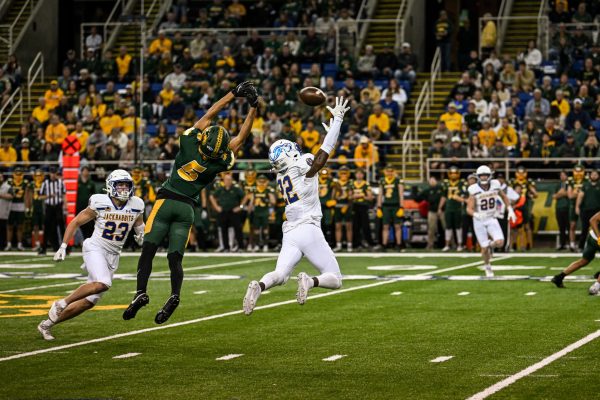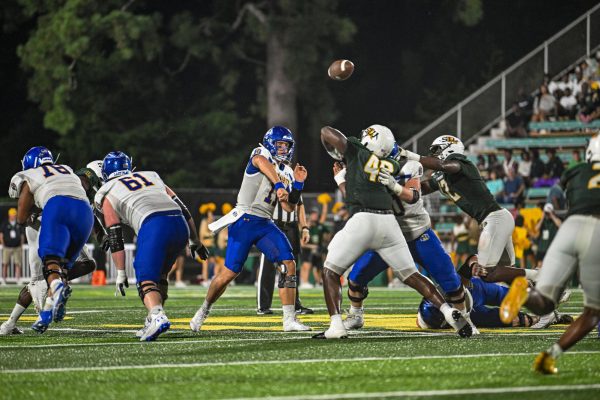Survey shows low senator-constituent communication
March 2, 2016
According to a survey conducted by The Collegian, communication between Students’ Association senators and students is lacking.
The Collegian conducted a week-long survey and collected 101 responses from members of the student body. The survey asked students about their knowledge of SA and how they felt about issues and resolutions presented to SA.
Senators elected to the South Dakota State Students’ Association are representatives of the student body and the students’ opinions. The communication between senators and students is one of the main ways senators decide how to vote on a bill introduced to the Senate when representing the students.
Around 87 percent of students who took the survey said they have not talked to their senators about issues brought to SA this year. Jess Peterson, a communication studies graduate student with a focus on political communication, said she wants to be informed by her senators about what issues are affecting her as a graduate student.
“I feel it’s vitally important to reach out and talk to constituents and get a feel for where they stand on different issues, because you’re representing them [the students], not yourself, when you’re sitting on the Senate,” she said.
Two different philosophies about the role for elected officials are whether or not the officials should serve as delegates or trustees. Dave Wiltse, a professor in the political science department, said a delegate will vote and articulate the demands of his or her constituents regardless of personal beliefs. A trustee will vote according to his or her conscience and values, regardless of what his or her constituents want.
“It’s a combination of both of them,” SA President Caleb Finck said about which of the two philosophies should be used on the Senate. “You need to understand what your constituents want and then be able to have all of the details of the topic at hand and be able to make an appropriate decision based on knowing what your students want, your constituents and knowing what is a good decision to make.”
In Wiltse’s opinion, SA senators aren’t able to act as delegates because they don’t know their constituents well enough.
The senators are divided up into the seven academic colleges to represent the student body. There are five senators representing the Agriculture and Biological Sciences College, which has 2,540 students enrolled. There are five at-large senators representing the entire student body with 12,589 students.
In addition to having a large number of students with an array of opinions on different issues, Wiltse said it’s difficult to have senators represent the students’ opinions when there’s a lack of interest and information about the issues brought to the Senate.
When told the results of the survey on how many students talked to Senators about issues, Finck wasn’t surprised. He said it’s difficult to get students interested in things like government.
“Being in a representative organization like Students’ Association is difficult because we still have a job to do,” Finck said. “Just because the students don’t want to pay attention and they don’t want to listen to us and they don’t want to give feedback and input and things like that, it’s important for us to still be there.”
Close to 20 percent of students who took the survey didn’t even know what SA was before taking the survey. Caleb McKinley, a speech communications and biology pre-optometry major, knew about SA but hadn’t talked to his senators about issues at SDSU before taking the survey.
“I guess that while I would prefer to be represented by someone that I know well and I’ve talked to about various issues relevant to the Students’ Association and our campus, I also understand it would be nearly impossible for every senator to talk to every student about every issue,” McKinley said.
McKinley said that although it is difficult to talk to every student, the more communication senators can have with their constituents helps the senators do a better job representing the student body.
Peterson was on the University of South Dakota student government before she came to SDSU for graduate school. She believed she was a delegate for the student body to represent the opinions of her constituents and believes the same philosophy applies to the senators representing her now.
Peterson’s area of study in communication and political science is different from the “hard sciences” such as chemistry, biology and physics. If her senators are studying the hard sciences, they might have a different method of thought than Peterson and a different opinion on an issue.
“I think about communication and the different ways I communicate, so I don’t have the same opinion as the other person in my office,” Peterson said. “So they need to come in and get all the information that they can.”
Ways Finck has started to reach out to students include sending the weekly Rabbit Report on Mondays, introducing himself to students in First-Year Seminar classes and informing students about what SA does. Senators also started a Wednesday Morning Coffee event where senators and students can meet for coffee at 8 a.m. on Wednesday mornings in the SA office.
Reaching out to constituents and constantly working on outreach are some of the main focuses SA has had over the past few years. Finck said it’s important to get in front of students and inform them about what senators do.
The SA elections for president and vice president as well as SA senators will be March 22 through 23.

